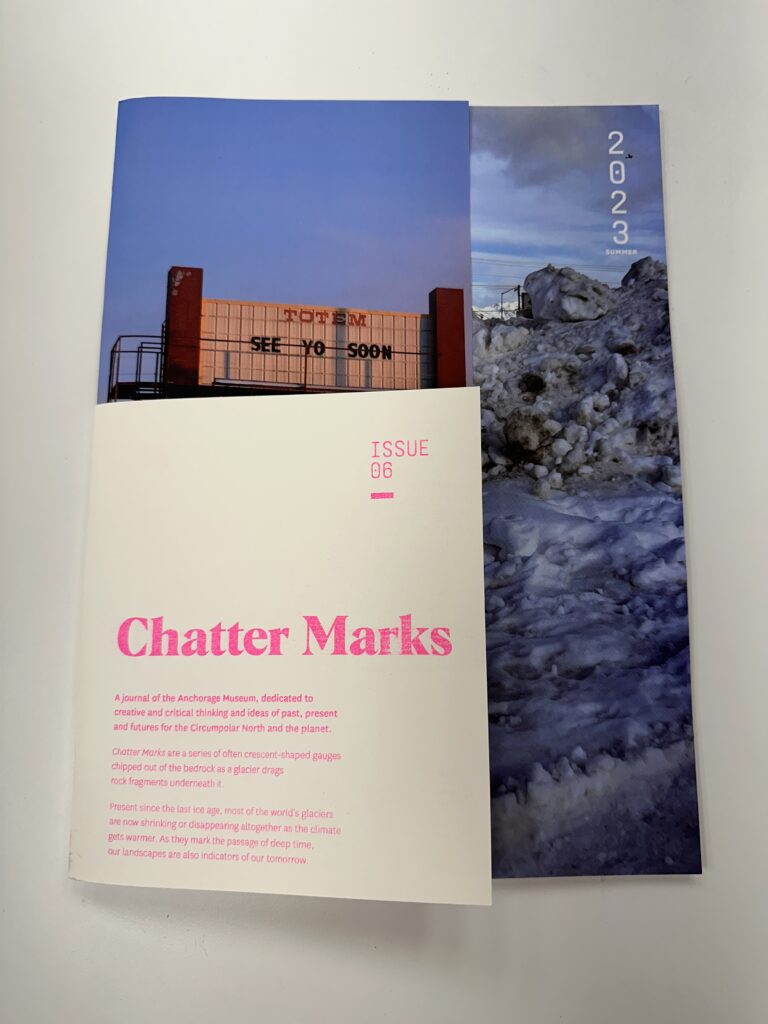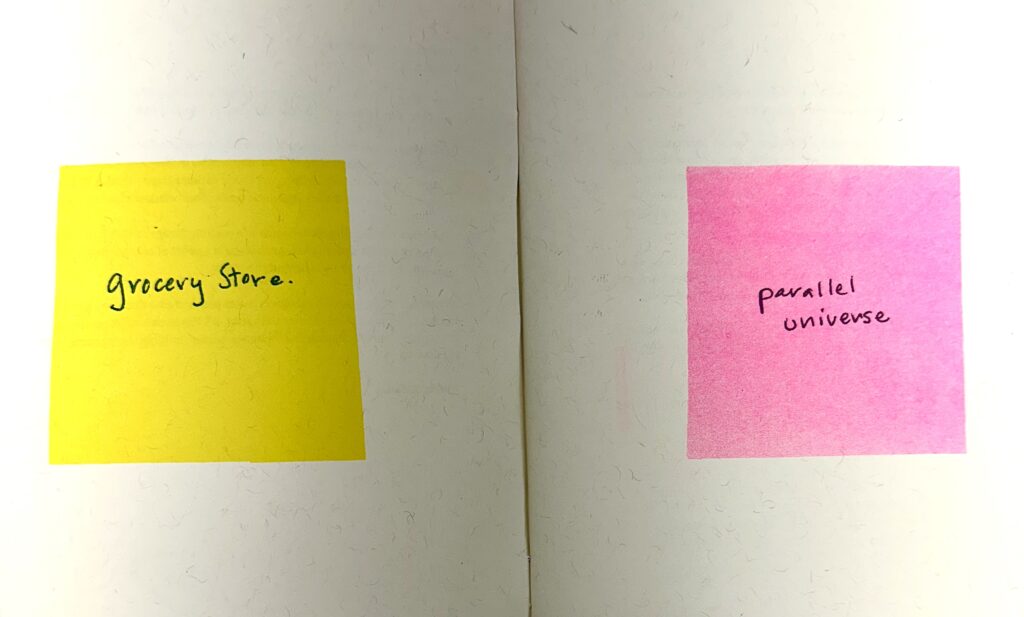Just this time, a year ago, I noticed a striking woman ahead of me in line for coffee. She wore a camel-colored coat and vintage crystal earrings, her face partly obscured by a mask. Then I realized I knew her. The eyes above the mask belonged to my friend Kelly.
“Hi friend,” I said. “You look lovely today. I like your earrings.”
And so began the kind of conversation you at that time with people who you hadn’t seen much in person since The Before Times. Remember this phase of the pandemic/post pandemic? A season of repair, kind of like what happens in a community after a tornado comes through, except our disaster bulldozed relationships instead of infrastructure. The feeling of being out in public for me ranged from unexpected joy to subtle awkwardness to exhaustion. To some extent it still feels a little that way.
I made my re-entry into the world of strangers and distant friends at Black Cup, writing short pieces and Anchorage Daily News stories as part of a collaboration with Anchorage Museum called the Neighbors Project.
Many of you receiving this newsletter were part of that project, either as story subjects, advisors or as participants in our public writing sessions. The stories and writings have been collected in a Chatter Marks museum journal and you can get free copy at our reading event, which will be Friday, March 1, at Seed Lab, at 6:30 p.m. The magazine contains a pocket zine made by artist Jimmy Riordan that publishes short personal narratives from our writing groups. Live readings begin at 7 p.m. (If you were part of a public writing group and would like to read, please get in touch by Friday, 2/23!)

Contributors to the project include: photographers Loren Holmes, Adan Hernandez, Marc Lester, Emily Mesner, Anne Raup and Bill Roth, as well as work by writers Sarah Freije, Jen Clark, Kate Ginsbach, Kirsten Merrell Kippen, Valerie Kern, Emily Mesner, Sonia Santaella and Brooke Norsted.
The year-long residency that produced this work was a deep look into the ways the pandemic changed us. It began in response to an ugly shift in Anchorage that occurred as the city came undone over covid restrictions. I’d been observing public life in Anchorage as a journalist for 20 years – but the level of vitriol that overtook the city in 2020 felt like a beloved family member having a psychotic break. The fabric of families and relationships frayed. Fear, disruption, misinformation and meanness ruled, as hospital beds filled with patients and obituaries piled up.
In early 2021, as I interviewed people across the political spectrum for this project, I began to notice how every story touched on two essential human impulses: longing for connection and grief over disconnection. There was the wife who said goodbye to her husband via Facetime as he died of covid but was comforted by a stream of gifts delivered to her doorstep by Twitter friends. A pastor learned to give Zoom sermons in an empty church but found himself visiting the homes of his elderly parishioners. One woman who took on her brothers’ children while his wife fought cancer. Another made peace with missing her grandchild’s birth because of the hospital’s limit on visitors. A teenager driven into depression found hope passing along kind messages as he worked a drive-thru. These stories were personal ones, but thousands of people experienced similar longings and losses. No wonder the community had lost itself.
Days after I ran into Kelly at the coffee shop, a hand-addressed envelope showed up in my mailbox. On the front was a quote from the French philosopher Simone Weil that read “Attention is the rarest and purest form of generosity.” Inside, she’d written a note, thanking me for making her feel noticed. I tucked the card in the frame of my mirror.
I thought about how years of semi-isolation refracted our self perceptions. Who are we when we’re not reflected back in the eyes of our neighbors? What happens without the essential warmth that comes with seeing familiar faces – even just the mail carrier coming up the walk with a bone in his pocket for your dog, the cashier at the corner store who greets you with a “How are you, mama?,” the old friend who notices your earrings? I know sometimes over the the pandemic few years, like Kelly, I felt like a ghost. I wonder, have we recovered?
The card sat in my mirror for months before I looked up Simone Weil’s writing. I discovered she was a post-war religious mystic who focused in part on the power of human connection. The act of giving attention to another person and simply accepting them is similar to a prayer, she said.
“People can love their neighbors by emptying themselves, becoming ready to receive their neighbor in all his or her naked truth, asking their neighbor: “What are you going through?” she wrote.
As I wrote last year, I mostly sat in threadbare chair near the windows at Black Cup. After a while, the smell of breakfast burritos and the scrape of old wood chairs against the floor felt like home. Josh, the barista, learned my order. Terry, an ethics professor at UAA, kept my same coffee shop hours. After a while, we started sharing a table.
I mentioned my reading to Terry. He lit up right away, listing various ethicists’ theories on connection, filling my head with questions. Despite the ugliness, is it actually good for democracy that so many people feel so passionately right now? Would it be worse if people were indifferent? Are the fundamental connections between people diminished when we can’t see each other’s faces? Might empathy transform a society?
I finished my coffee and headed out on an errand to buy bread at Fire Island, driving through the spring grit of Midtown, ravens swooping over gray snow berms. Every building along my path, the old Blockbuster, Taco King, even Queen’s Cleaner, held a trove of tiny memories – passing interactions that built a sense of the familiar and taught me how to exist in community. I’d yet to returned to many my old haunts. I was out of practice. I some ways, I still am.
The bakery was crowded when I got there. As I stood in a line, I saw Janis, whose family runs the business. Once, a decade earlier, when I came in shortly after having my son, she gave me a chocolate cake because, she said, a woman who has given birth deserves a present. I hadn’t seen her much for three years. She noticed me in line and offered a warm challah roll across the counter. “Tear off a piece,’” she said. I did. As it melted on my tongue, it was both no big deal and everything.
